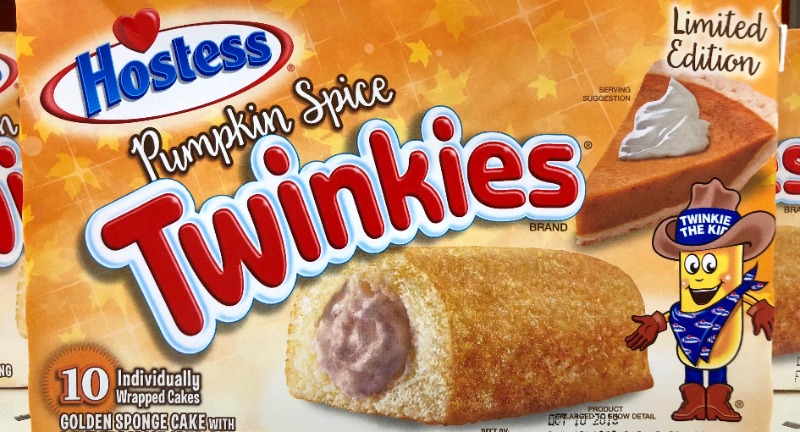
Shutterstock
American cuisine is celebrated for its bold flavors, irresistible convenience foods and vibrant snacks. Numerous iconic foods have captivated the hearts and taste buds of millions.
Surprisingly, some of the most ubiquitous foods in the United States are banned in other countries due to ingredients in the food. Regions like the European Union, Japan, and the UK have imposed restrictions on certain foods containing artificial dyes, preservatives, and additives due to associated health risks. Let’s explore 26 popular American food items that are prohibited in other countries.
Little Debbie Swiss Rolls
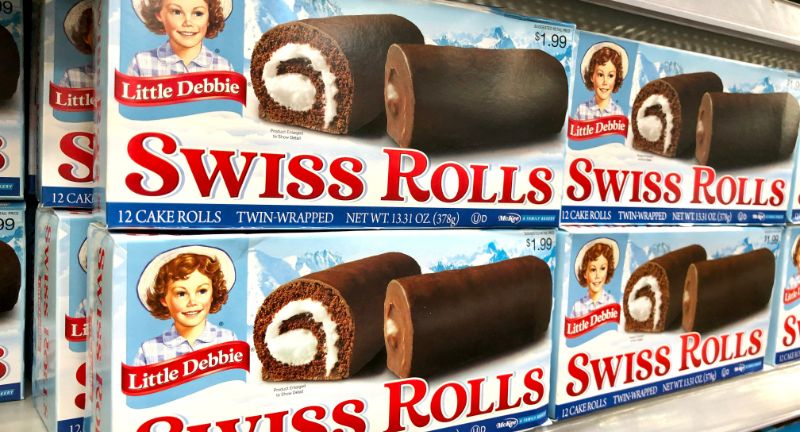
Shutterstock
Little Debbie Swiss Rolls are a nostalgic treat for many Americans, featuring a chocolate coating and cream filling. However, these tasty snacks are banned in the European Union due to the presence of artificial dyes Yellow 5 and Red 40, which have been linked to hyperactivity and behavioral issues in children. Despite this, they continue to be a popular snack cake in the U.S., often enjoyed with a cold glass of milk.
Froot Loops
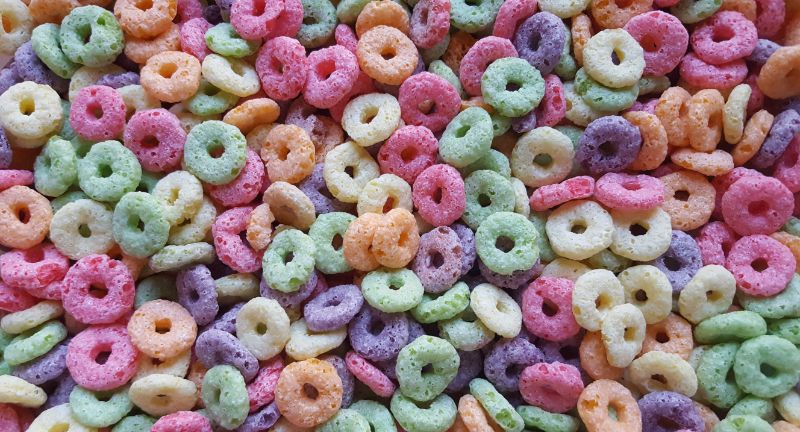
Shutterstock
Froot Loops are banned in certain countries primarily due to their artificial colors and high sugar content, which clash with stricter food safety regulations. These vibrant cereals contain synthetic dyes like Red 40, Yellow 5, and Blue 1, linked to health concerns such as hyperactivity in children and potential carcinogenic effects. Additionally, the cereal’s substantial sugar levels contribute to rising obesity rates, prompting health-conscious nations to prohibit its sale.
Instant Noodles
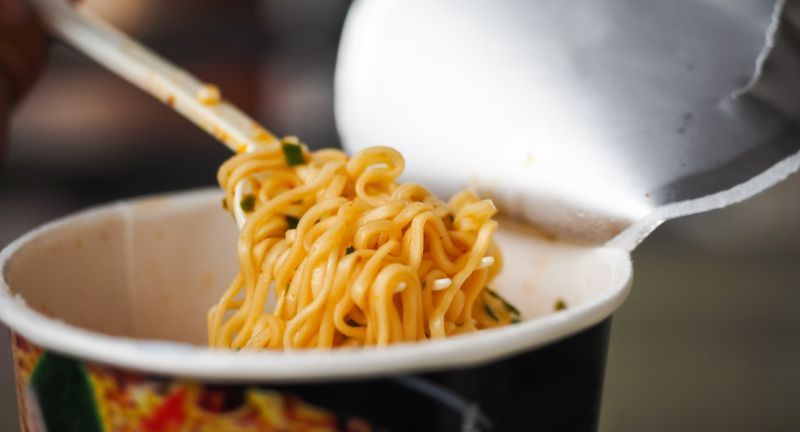
Shutterstock
Instant noodles, a popular and convenient meal in the United States, are prohibited in the European Union due to the presence of TBHQ (tertiary butylhydroquinone), a synthetic antioxidant. TBHQ is utilized to prolong the shelf life of processed foods, but animal studies indicate that high doses might result in liver enlargement and neurotoxic effects. This contentious preservative has also been associated with vision problems and stomach tumors in certain research studies.
Milk
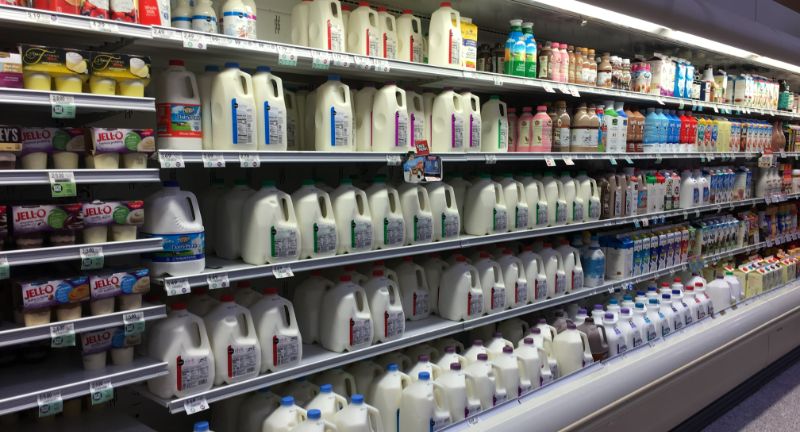
Shutterstock
In the United States, dairy cows are frequently administered recombinant bovine growth hormone to enhance milk yield. However, the European Union and Canada have prohibited the use of rBST over concerns about animal welfare and potential health risks. These risks include elevated levels of insulin-like growth factor-1, which has been associated with certain types of cancer. Additionally, critics point to the higher occurrence of mastitis in cows treated with rBST.
Ginger Ale
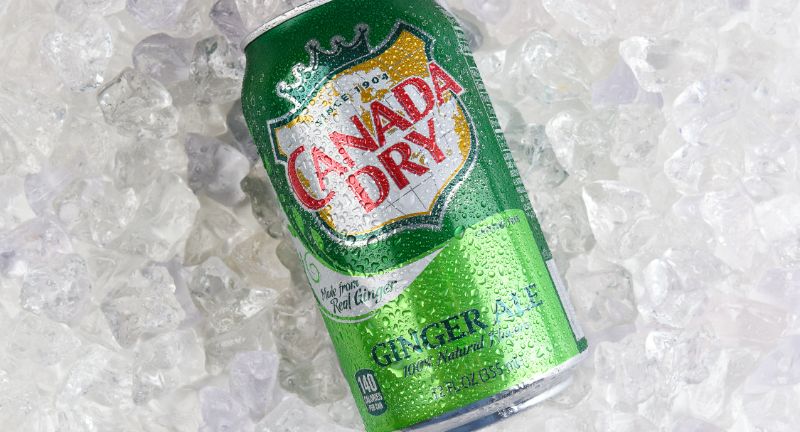
Shutterstock
Ginger ale, known for its popularity as a mixer and a remedy for stomach discomfort, is prohibited in the European Union because it contains brominated vegetable oil (BVO). BVO assists in evenly blending flavorings, but its tendency to accumulate in body fat has raised alarms regarding its impact on thyroid and neurological health. Due to these potential health risks, stricter regulations have been implemented overseas.
Fruit Roll-Ups
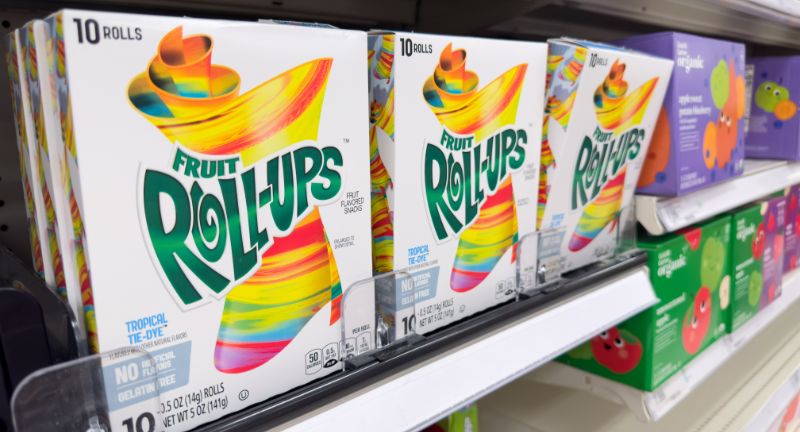
Shutterstock
Fruit Roll-Ups are banned in some countries due to their high levels of artificial colors, preservatives, and added sugars, which conflict with more rigorous health regulations abroad. The vivid colors in these snacks come from synthetic dyes, such as Red 40 and Yellow 5, which have been associated with behavioral issues in children and potential health risks. Also, the high sugar content contributes to health concerns like obesity and dental problems, leading to their prohibition in health-conscious regions.
Kraft Macaroni & Cheese
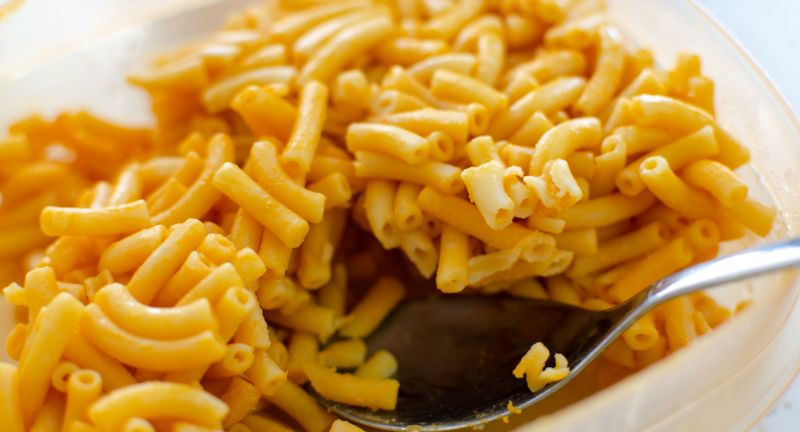
Shutterstock
Kraft Macaroni & Cheese is banned in certain countries due to its use of artificial food dyes, such as Yellow 5 and Yellow 6, which are linked to health concerns like hyperactivity in children and potential allergic reactions. These synthetic additives are prohibited in some nations with stricter food safety standards that prioritize natural ingredients. The high sodium content and preservatives in this popular comfort food raise further health issues, prompting regulatory bans.
Hungry-Man Frozen Dinners
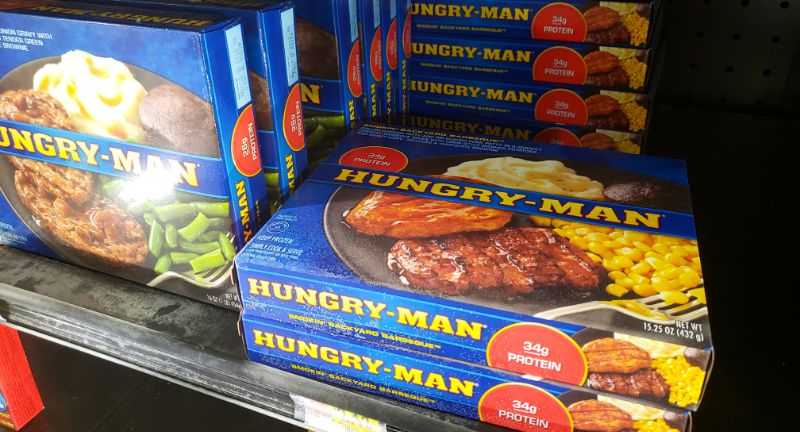
Shutterstock
Hungry-Man Frozen Dinners are prohibited in the European Union because they contain partially hydrogenated oils and have high sodium content. These oils have trans fats, which are linked to heart disease and other health problems. These frozen dinners also surpass the daily recommended sodium intake, raising concerns about their effect on blood pressure.
Skittles
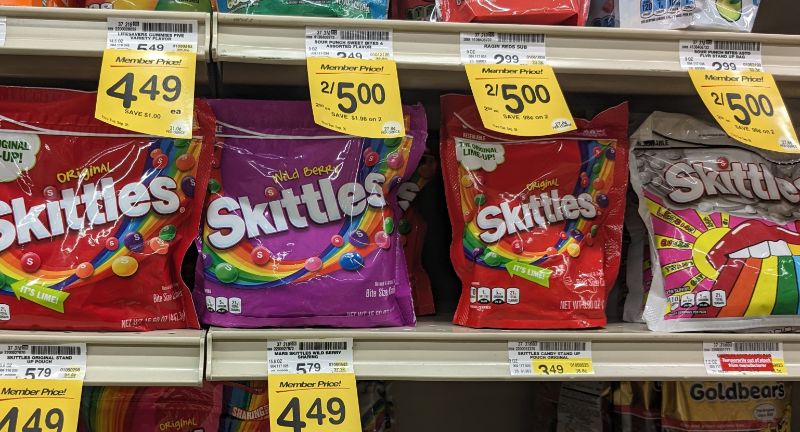
Shutterstock
Skittles are banned in certain countries in the European Union due to their use of artificial colorings, such as Yellow 5, Yellow 6, and Red 40, which are associated with health risks like hyperactivity in children and potential carcinogenic effects. These synthetic dyes are prohibited in nations with stricter food safety regulations that emphasize the use of natural ingredients. Skittles contain high levels of sugar and artificial additives, contributing to health concerns like obesity and dental problems.
Flamin’ Hot Cheetos
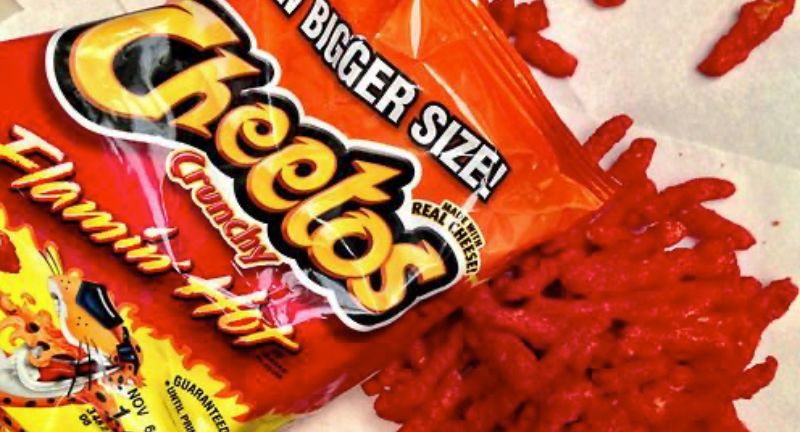
Pinterest
Flamin’ Hot Cheetos, known for their intense heat and vibrant red color, are banned in certain countries due to health concerns. The high levels of artificial additives, including dyes and flavor enhancers, have raised alarms about their potential adverse effects on children’s health, leading to restrictions. Also, the extreme spiciness can cause gastrointestinal distress, prompting some school districts to remove them from vending machines and cafeterias.
Boxed Mashed Potatoes

Shutterstock
Boxed mashed potatoes are banned in certain countries primarily due to their high content of preservatives and artificial additives, which raise health concerns. These additives, used to extend shelf life and enhance flavor, can include sodium bisulfite and artificial flavors, which some countries deem unsafe for regular consumption. The dehydration process used in producing these instant potatoes often strips away essential nutrients, leading to a nutritionally inferior product.
Pop-Tarts
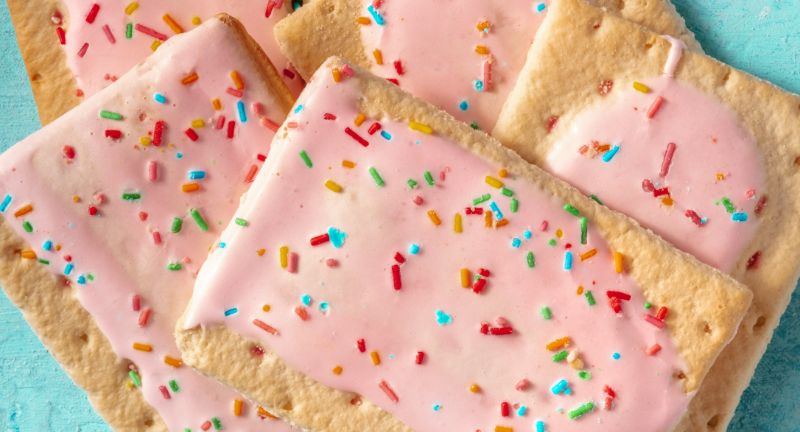
Shutterstock
Pop-Tarts are banned in the European Union primarily due to the inclusion of certain artificial colorings and preservatives that do not meet the EU’s stringent food safety standards. Ingredients such as Yellow 5, Red 40, and various trans fats have been linked to health concerns, including behavioral issues in children and an increased risk of chronic diseases. The EU enforces strict regulations to minimize the presence of potentially harmful additives in food products.
Twinkies
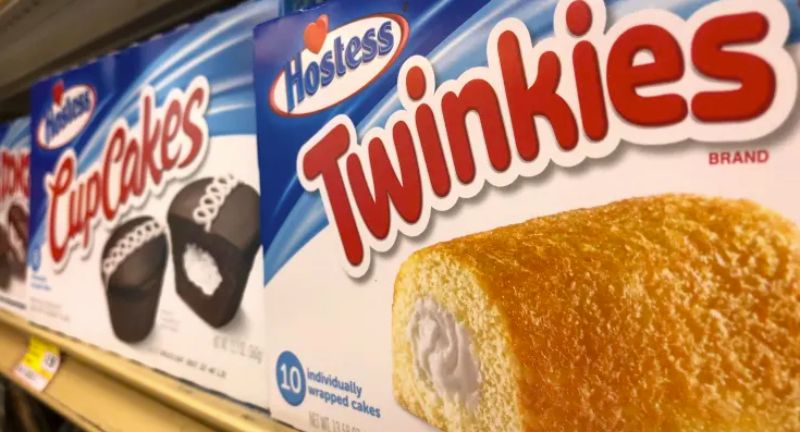
Getty
Twinkies are banned in certain countries due to their high content of artificial additives, preservatives, and trans fats, which pose significant health risks. Ingredients like hydrogenated oils and high fructose corn syrup are linked to obesity, heart disease, and diabetes, prompting stricter food safety regulations. Some countries prioritize the reduction of synthetic chemicals in their food supply to protect public health and promote healthier eating habits
Chicken

Shutterstock
In the U.S., chicken is often treated with chlorine to reduce bacteria, a process known as ‘chlorine washing.’ However, this practice is banned in the European Union, where stringent regulations ensure higher hygiene standards throughout the entire supply chain. European authorities argue that chlorine washing masks poor hygiene practices during production, and research indicates potential health risks from chemical residues. Despite the ban in some countries, chlorinated chicken remains a common feature in many American households.
Farm-Raised Salmon
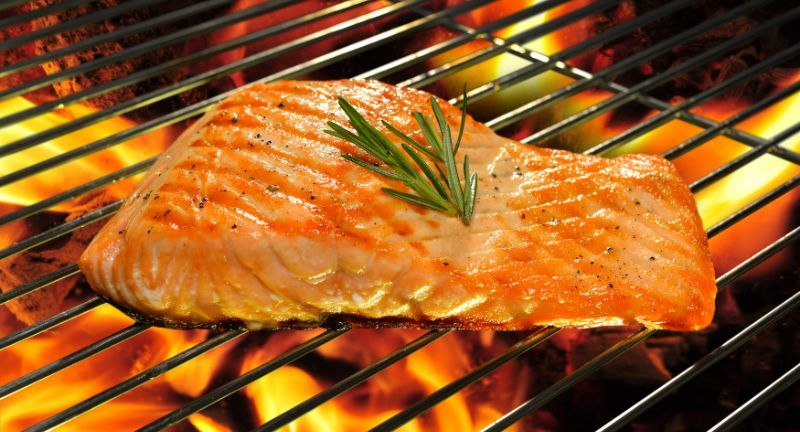
Shutterstock
Farm-raised salmon is banned in Australia and New Zealand due to concerns over the use of artificial colorants and high levels of antibiotics in aquaculture practices. These additives, used to enhance the salmon’s pink hue and prevent disease, can pose health risks to consumers and contribute to antibiotic resistance. Environmental issues such as water pollution and the spread of diseases to wild fish populations have also prompted these countries to favor wild-caught salmon.
Frozen Waffles
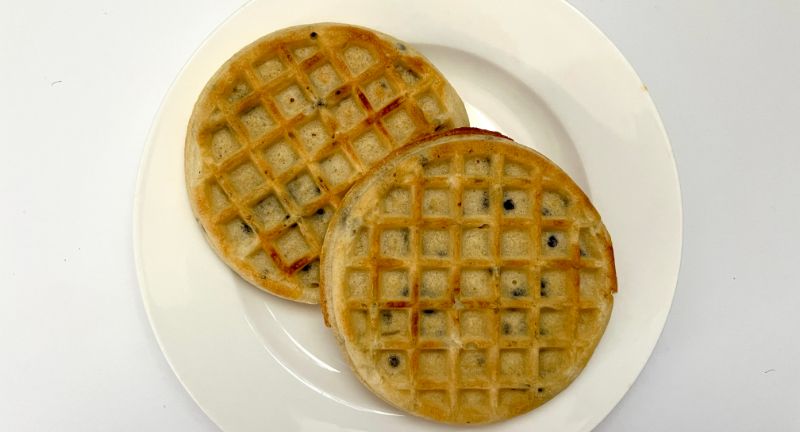
Shutterstock
Frozen waffles like Eggo are banned in the European Union primarily due to their high levels of artificial ingredients, including preservatives and food dyes, which do not meet the EU’s stringent food safety standards. These additives, such as partially hydrogenated oils, have been linked to health issues like heart disease and obesity.
Betty Crocker Cake Mix
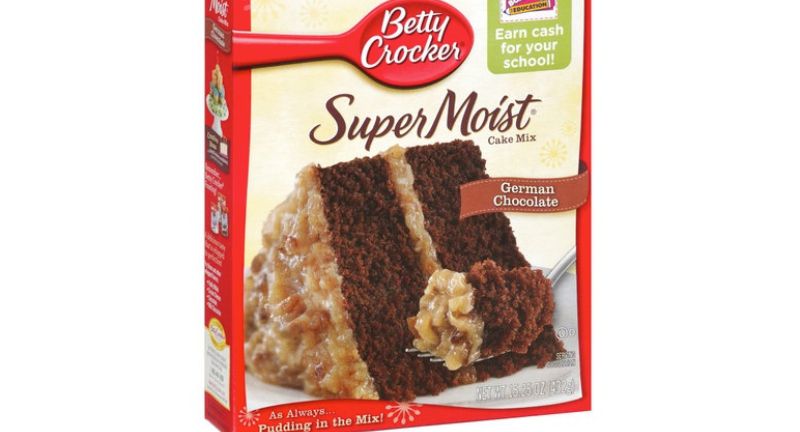
Pinterest
Betty Crocker Cake Mix provides an easy solution for baking cakes. However, it is prohibited in the European Union because it contains partially hydrogenated oils and artificial dyes. These oils contribute trans fats, which are associated with heart disease. Despite this restriction, the mix continues to be a popular item in American households.
Pork
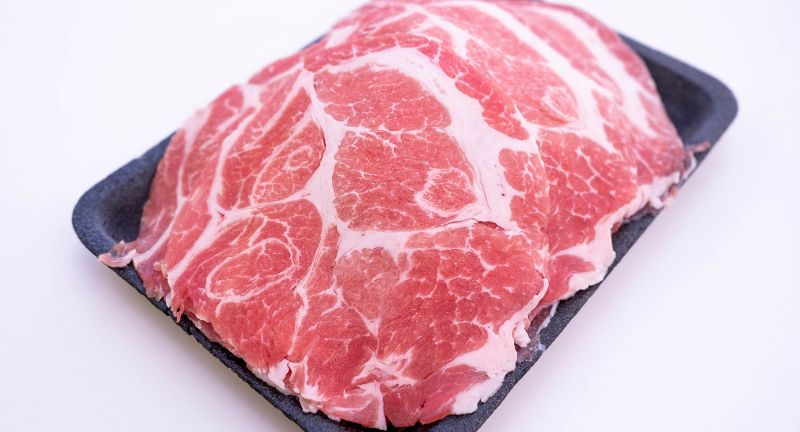
Shutterstock
Pork containing ractopamine, a growth drug, is banned in the European Union and China. This drug is used in the U.S. to promote leaner pork but is linked to cardiovascular issues and reproductive problems. Although it’s widely accepted by the FDA, many international health organizations have expressed concerns about its safety. Despite these bans, ractopamine-treated pork is still commonly consumed in America.
Bread

Shutterstock
Most breads made in the United States are banned in the European Union due to the inclusion of certain additives and preservatives that do not meet the EU’s stringent food safety standards. Common ingredients like potassium bromate and azodicarbonamide, used to enhance dough strength and shelf life, have been linked to health risks such as cancer and respiratory issues.
Doritos
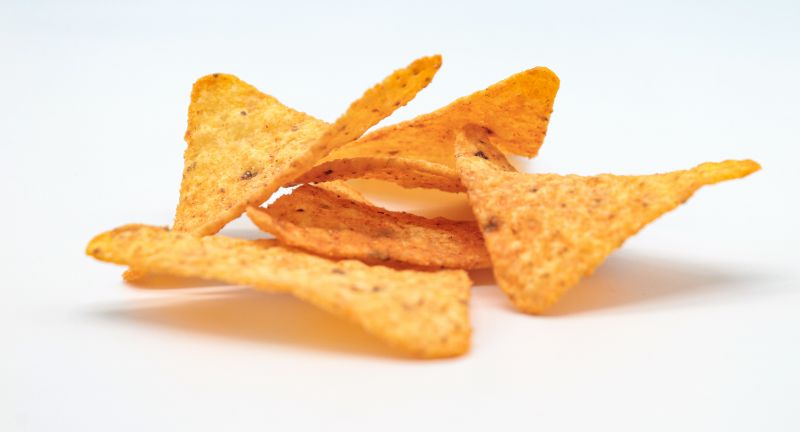
Shutterstock
The American formula of Doritos, the flavorful, crunchy tortilla chips, are banned in the EU due to their use of artificial dyes Yellow 5 and Yellow 6. These dyes are known to cause hyperactivity and behavioral problems in children and are also linked to potential cancer risks. Frito-Lay, the manufacturer, uses natural dyes in its European products but continues with the original formula in the U.S. Despite the ban, Doritos remain a popular snack for many Americans.
Coffee-Mate Creamer
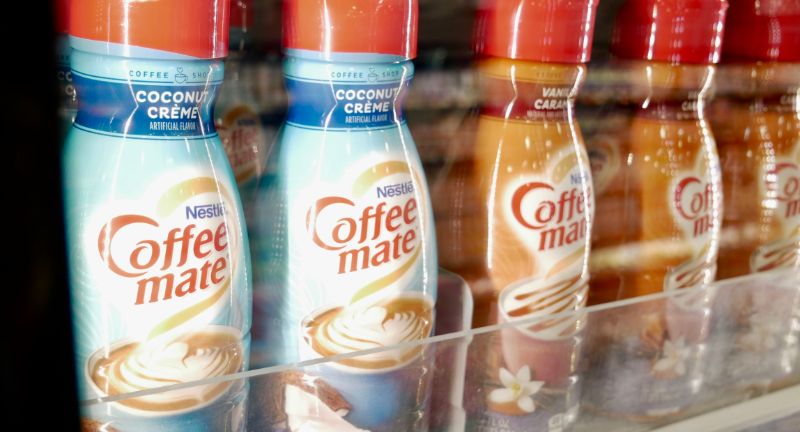
Shutterstock
Coffee-Mate Creamer is banned in the European Union due to its inclusion of partially hydrogenated oils, which are a significant source of trans fats linked to heart disease and other health issues. The EU has stringent regulations against trans fats, recognizing their contribution to increased cholesterol levels and cardiovascular risk. Despite the ongoing controversy, Coffee-Mate continues to be a popular choice for many Americans in their morning routines.
Pillsbury Biscuits
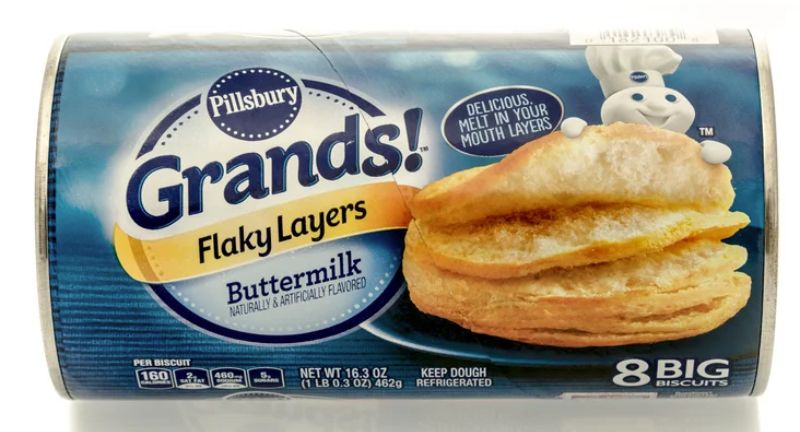
Getty
Pillsbury Biscuits, famous for their buttery flakiness, are prohibited in the European Union because they contain partially hydrogenated oils, a major source of trans fats. These trans fats have been associated with a higher risk of heart disease and stroke, leading to tougher regulations abroad. General Mills, the parent company, has modified the biscuits for European markets but continues to sell the original version in the United States.
Jell-O
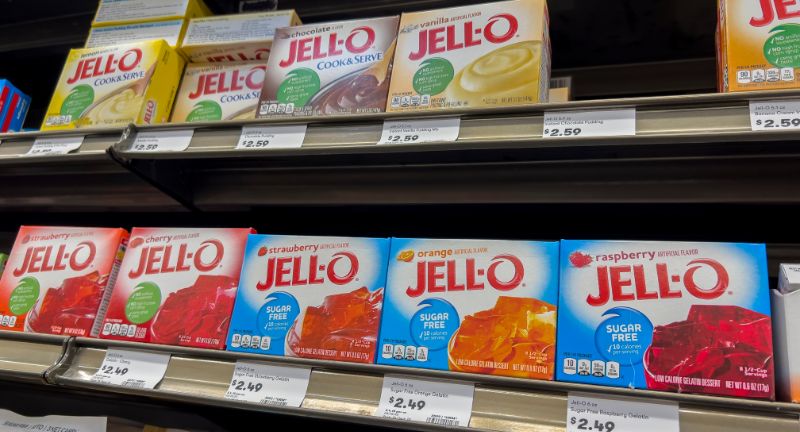
Shutterstock
Jell-O is banned in certain countries, including the European Union and Norway, primarily due to the use of artificial food dyes and sweeteners that do not comply with their stringent food safety regulations. Ingredients such as Red 40 and Yellow 5 have been linked to behavioral issues in children and potential carcinogenic effects, prompting these countries to prohibit their use. The EU and Norway enforce strict guidelines to minimize the presence of potentially harmful additives in food products, prioritizing consumer health.
Ritz Crackers

Shutterstock
Ritz Crackers are banned in certain countries, including Switzerland and parts of the European Union, due to the presence of partially hydrogenated oils, which are a source of trans fats linked to heart disease and other health issues.
Gatorade
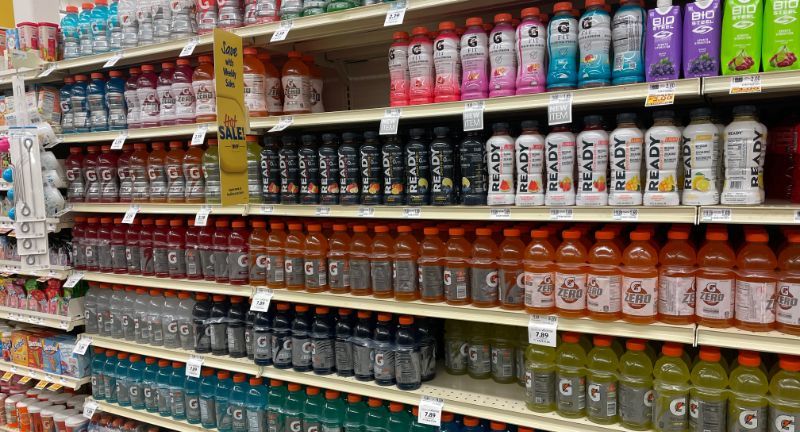
Shutterstock
The popular sports drink, is banned in countries like Norway and Austria due to its use of artificial food dyes, specifically Yellow 5 and Yellow 6, which are linked to health concerns such as hyperactivity in children and potential carcinogenic effects. Gatorade continues to be a preferred option for athletes and fitness enthusiasts in the United States.
Mountain Dew
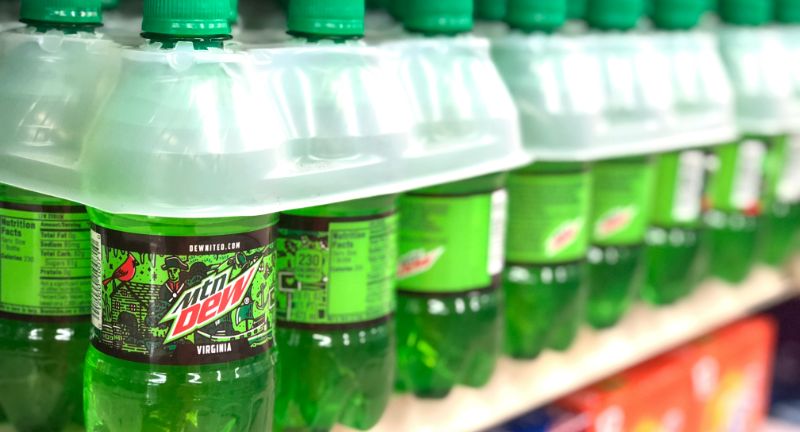
Shutterstock
Mountain Dew is a popular beverage in the United States, recognized for its distinctive neon-green color and high caffeine content. Mountain Dew is banned in several countries, including Japan and some parts of the European Union, primarily due to its use of brominated vegetable oil, which is linked to health issues such as memory loss and skin problems. BVO contains bromine, a chemical also found in flame retardants, raising significant safety concerns.
Conclusion

Shutterstock
As international food standards are continuously changing, the bans on certain ingredients found in U.S. foods underscore significant differences in global health and safety regulations. Despite their popularity in American cuisine, these prohibited items abroad prompt concerns about the long-term impact of their controversial ingredients. By staying informed and opting for products with cleaner labels, consumers can make healthier choices. The scrutiny these foods face highlights the need for transparency and reflects the changing dynamics of food safety.




















































